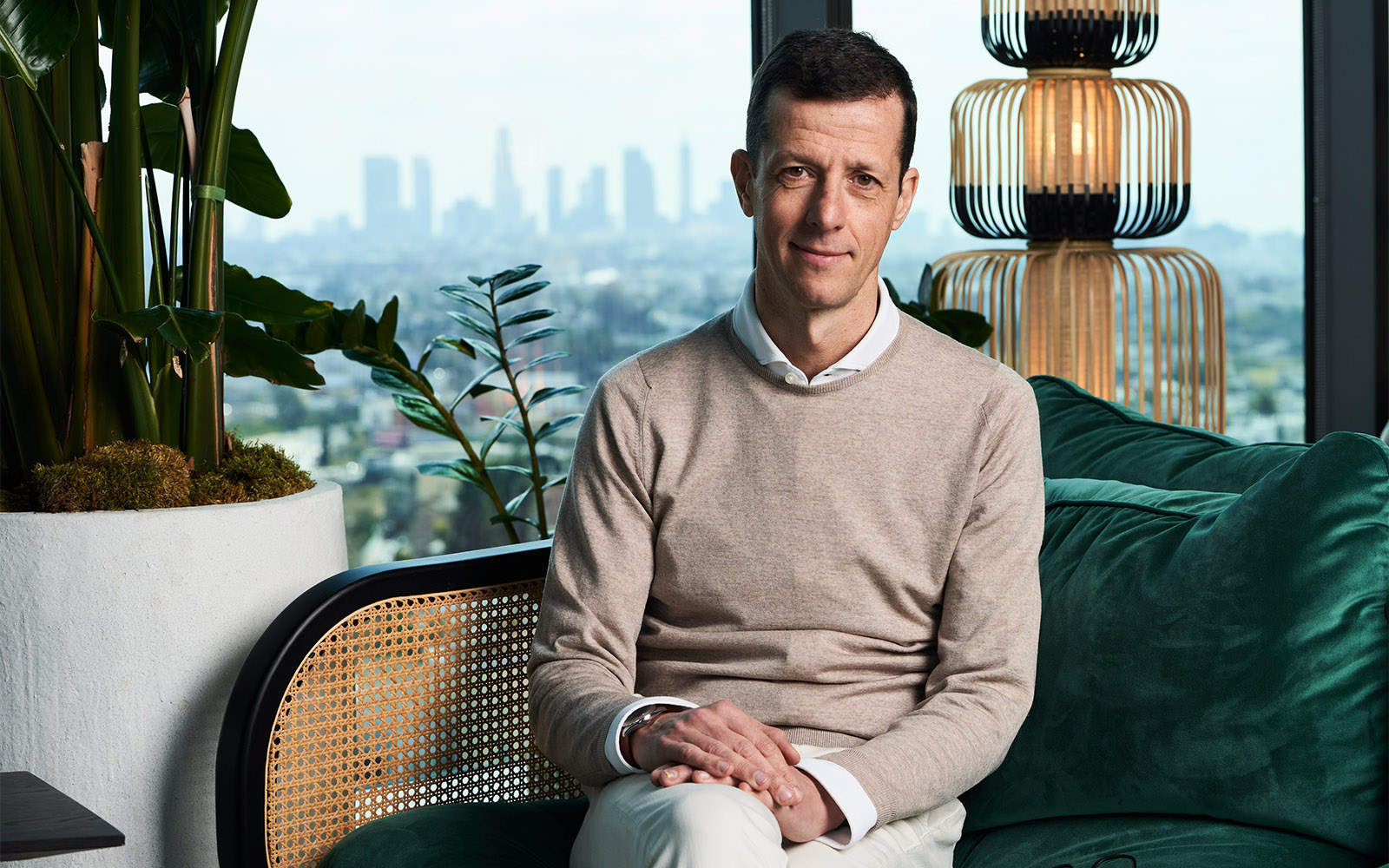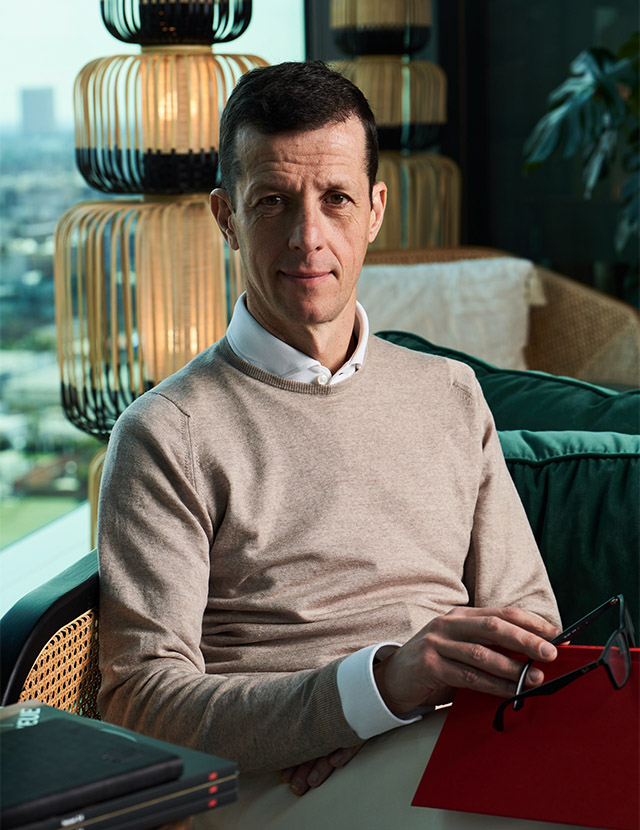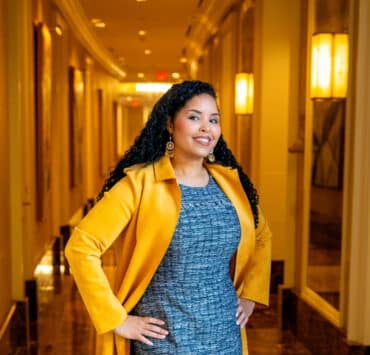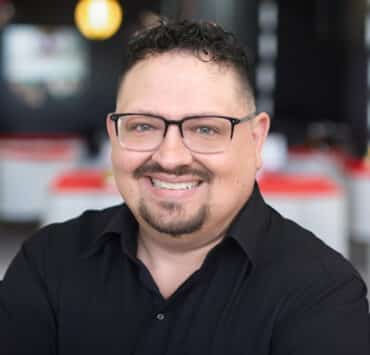|
Getting your Trinity Audio player ready...
|
When the pandemic hit in 2020, Sergio Ezama found himself at a crossroads. The then chief talent officer and chief human resources officer of global groups and functions at PepsiCo had built an incredible society over two decades. His roles brought him from Spain to Switzerland, from Russia to the US—and he’d risen through eight promotions in the process. But, stuck at home with time to reflect, Ezama took stock of where his life was and what his career should look like over the next decade.
“I think I just realized I only had so many years of my career in front of me,” Ezama explains. “Did I want to stay where I had been for twenty years or challenge myself in a radically different environment? That was going through my head when Netflix called.”
The allure of coming to Netflix, the current chief human resources officer (CHRO) says, is that Netflix finds itself at a critical pivot point. While it’s easy to think of the company as the first app you pull up when you turn the TV on, it’s important to remember that Netflix is approaching thirty. Before instant streaming was available, there were years of DVD mailing as the company sought a complete transformation to how we seek out films and television.
“I hope that I am proof that diversity makes a business if you take the time to look for talent you otherwise might have overlooked.”
Sergio Ezama
Despite driving that revolution, the streaming giant found itself needing to reinvent itself yet again. In 2022, the company announced a first: the loss of over one million subscribers. The news was shocking but understandable in a streaming war that saw the siphoning of content for a myriad of new upstart streaming services and other competitors. Shares at Netflix fell sharply, but the 2024 company outlook shows promise.
Netflix has returned to high growth mode, adding nearly nine million new subscribers in the third quarter of 2023—more than any other quarter, except for the early days of the pandemic. That growth included successful succession planning, the launch of a video game service, monetizing account sharing, and the addition of an advertising-tier.
This was exactly the kind of change Ezama was looking for in his own career, helping redefine a company whose own evolution has repeatedly changed the landscape in which it operates.
“Intellectually, this was incredibly different from the consumer packaged goods (CPG) space where I had grown my career,” the CHRO shares. “The CPG space has more stability, and I got to come here at yet another great point of change for this young organization. It was a chance to take a bespoke culture that was critical for its growth and figure out how to grow it into a globally operating organization.”

Ezama says the mandate he felt coming to Netflix was to help scale and globalize the company without removing the parts of its culture that make it so adept and agile. It’s as difficult as it sounds.
“I was in a new space in a new role where I had to learn a lot about the company very quickly,” Ezama says. “The first year-and-a-half was very difficult, because I had none of that institutional knowledge I had gained over twenty years at Pepsi. At the same time, I had to help drive a new direction.”
The human resources leader has been instrumental in helping Netflix evolve from a US-centric organization to a more global approach, establishing an operating model where regional and country teams across the world play a pivotal role. He’s also helped start up new business lines like advertising and the gaming, all while figuring out how to embed those new lines in the company organically.
“The CPG space has more stability, and I got to come here at yet another great point of change for this young organization. It was a chance to take a bespoke culture that was critical for its growth and figure out how to grow it into a globally operating organization.”
Sergio Ezama
Not all the growth or capability build could be organic, though. Netflix made the decision to acquire a visual effects company, a few small gaming companies, and an animation company over the past few years. It was a new move for Netflix and, fortunately, an era where Ezama had a great deal of experience.
“I had helped lead a number of acquisitions at Pepsi and am very familiar with integrating new companies into a larger organization,” he says. “That pacing requires a great deal of nuance and a lot of good judgment in what can be very stressful situations.”
Succeeding in a completely new industry is a point of pride for Ezama. He hopes that his own background can serve as a point of inspiration for others to seek out leadership positions, even though their background may not be traditional.
Ezama grew up in Bilbao, Spain, and proudly speaks English with an undeniable Spanish accent. What’s more: he’s always carried himself in a way that may seem a bit informal to the traditional corporate space. But he also knows that his varied background and experience provides an invaluable perspective that he keeps in mind when sourcing talent for his own organization.

“Why would I limit my talent pool to the same group of people from the same universities and parts of the US?” Ezama asks. “I wish corporate America would be more open to the unusual talent that pays off, because it makes perfect business sense to me. I hope that I am proof that diversity makes a business if you take the time to look for talent you otherwise might have overlooked.”
The CHRO may have more years behind his career than in front of it, but his third act has already yielded incredible dividends. Looking to the future, the pioneer is placing a higher premium on his time outside the office than ever before. A father and husband, Ezama is an avid exerciser and manages to run a handful of long trail races each year. He played professional volleyball in his youth and is committed to keeping his body—and his mind—in prime condition.
“I also find some time to ‘research’ some Netflix shows and movies, as well,” Ezama jokes. “It’s part of my job, right?”
Egon Zehnder is thrilled to see Sergio Ezama recognized for his exceptional leadership by Hispanic Executive. We understand the impact great leaders can have and celebrate his achievements while continuing to watch him thrive.
We are proud to be working with Sergio Ezama and his team as they tackle today’s workforce challenges. Mercer and its clients are redefining the world of work, reshaping retirement and investment outcomes, and unlocking real health and well-being. We do this by meeting the needs of our clients.

